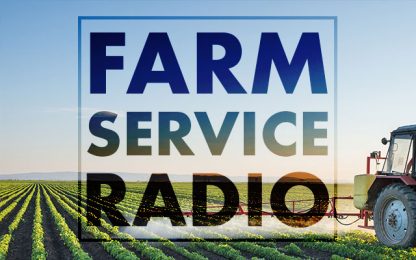Private pesticide applicator recertification in 2024

If you plan to use a Restricted Use Pesticide on land or sites for the production of agricultural commodities, reside in the state of Minnesota, and your private pesticide applicator certification expires on March 1, 2024, you need to renew your certification. You can double check your certification status at: https://z.umn.edu/PPAlookupMDA. While there are several options to recertify, the cost is the same ($75) regardless of the option you choose.
Option 1: Attend a live in-person workshop. Workshops offer a great opportunity to review regulations and safety issues related to pesticide application, as well as provide you with the latest University research on integrated pest management. Recertification workshops scheduled for Southwestern MN include (complete list at www.pat.umn.edu):
-
Jan 29, Pipestone, MN West Community & Technical College-Rm 103: 12:30 – 4:00 pm
-
Jan 30, Slayton, Murray County 4-H Bldg: 12:30 – 4:00 pm
-
Feb 1, Fairmont, Best Western: 9:00 am -12:30 pm
-
Feb 6, Sleepy Eye, Sleepy Eye Event Center: 12:30 – 4:00 pm
-
Feb 8, Lamberton, Southwest Research and Outreach Center: 12:30 – 4:00 pm
-
Feb 12, Marshall, Merit Center: 12:30 – 4:00 pm
-
Feb 13, Jackson, American Legion: 12:30 – 4:00 pm
-
Feb 16, Montevideo, American Legion: 12:30 – 4:00 pm
-
Feb 19, Albert Lea, Riverland Community College-Rm 124: 12:30 – 4:00 pm
-
Feb 27, Worthington, Worthington Event Center: 9:00 am – 12:30 pm
Anyone attending a workshop for recertification MUST bring a government-issued photo ID, such as a driver’s license or passport AND your Private Pesticide Applicator Certification Card or number. Please note you must attend the entire workshop to meet recertification requirements.
Walk-ins are welcome, but pre-registration (requires credit card payment) is available up to 3 days prior to the event at www.pat.umn.edu (please note cancellation policies). Check-in will start 30 minutes prior to the posted start time. For walk-ins, payment will be collected by checks only, payable to “University of Minnesota”.
Before heading out to a workshop, check for any last-minute updates in case a workshop has been canceled or postponed due to a facility issue, illness or bad weather. If you pre-registered online, check your email for a cancellation notice. Workshop updates will also be posted on the PSEE webpage at z.umn.edu/2024PPATworkshops or the Farm Information Line at 1-800-232-9077.
Workshop topics this year include Pesticide Laws and Regulations, Personal Protective Equipment, Planning a Successful Pesticide Application, and Current Pest Issues and Integrated Pest Management.
Option 2: Attend a live, online Zoom workshop. Join Feb 14, 17:45 am – 11:45 am – fruit and vegetable focus, OR Feb 29, 9:00 to 12:30 – commodity crop focus. Space is limited and pre-registration is required. See more details at www.pat.umn.edu.
Option 3: Take the exam online. Go to www.pat.umn.edu and click on “Exam” under the “Certification” heading. The study manual (19th edition), is available online at no cost.
Option 4: Take the mail-in written exam. Pick up a test packet at most county Extension offices or contact the Worthington Regional Extension Office (507-372-3900, Ext 3901). You may also pick up a hard copy of the study manual for $10.
Successful completion of any of these options will renew your certification for 3 years. For more details and requirements on all the options, including payment and cancellation policies, go to: www.pat.umn.edu.
Note these workshops are separate from the additional, annual training required for certified applicators who wish to apply dicamba formulations onto dicamba-tolerant soybeans. Check the manufacturer’s website for more information regarding these sessions. If you plan to apply paraquat, see https://z.umn.edu/paraquat for more details on additional training requirements as well.
If you have never been certified or your certification has lapsed, you MUST take the test either online or by the mail-in option to receive your certification. After successfully becoming certified, you will be eligible for recertification options when it is time to renew in 3 years.


